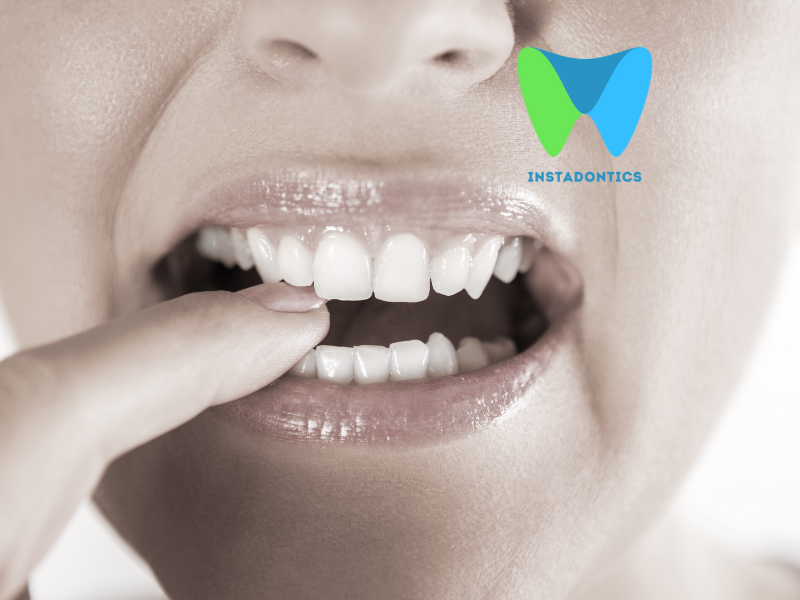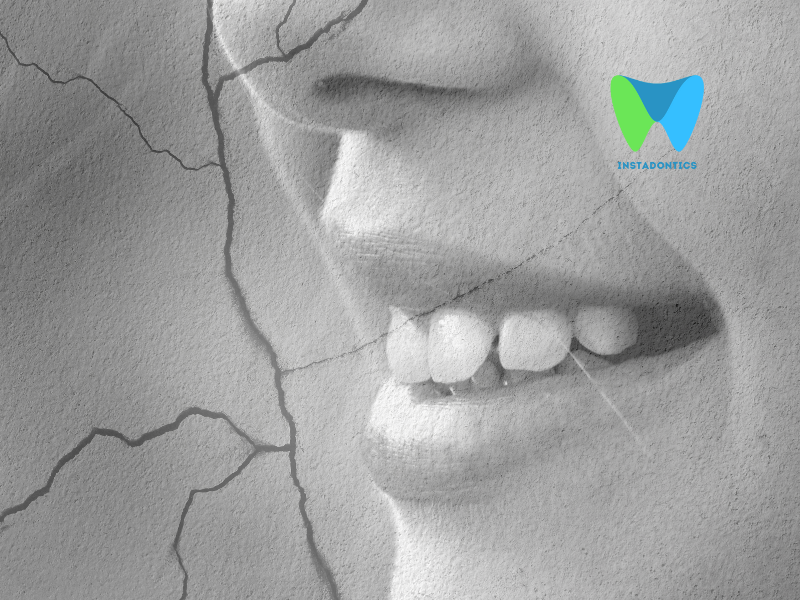Teeth grinding, clinically known as bruxism, is a common dental condition that can lead to various oral health issues if left untreated. Many people grind their teeth occasionally, but for some, it becomes a habitual behavior that can occur during the day (awake bruxism) or at night (sleep bruxism). Understanding the causes of teeth grinding is essential for effective management and prevention. In this blog, we will explore the primary factors that contribute to bruxism.
1. Stress and Anxiety
One of the leading causes of teeth grinding is stress and anxiety. When individuals experience high levels of stress, they may unconsciously clench their jaws or grind their teeth as a coping mechanism. This can occur during the day or while sleeping, leading to wear and tear on the teeth and potential jaw discomfort.
How to Manage:
- Stress Reduction Techniques: Practice relaxation techniques such as deep breathing, meditation, or yoga to help manage stress levels.
- Counseling or Therapy: Seeking professional help from a therapist can provide tools to cope with anxiety and stress.
2. Sleep Disorders
Sleep disorders, such as sleep apnea, can contribute to bruxism. Individuals with sleep apnea may grind their teeth as a response to interrupted breathing during sleep. This grinding can exacerbate other sleep-related issues and lead to further complications.
How to Manage:
- Consult a Sleep Specialist: If you suspect you have a sleep disorder, consider undergoing a sleep study to identify any underlying conditions.
- Use a CPAP Machine: For those diagnosed with sleep apnea, using a Continuous Positive Airway Pressure (CPAP) machine can help alleviate symptoms and reduce grinding.
3. Misaligned Teeth or Bite Issues
Dental problems such as misaligned teeth or an improper bite (malocclusion) can lead to bruxism. When teeth do not fit together correctly, it can cause discomfort, prompting individuals to grind their teeth in an attempt to find a more comfortable position.
How to Manage:
- Orthodontic Treatment: Consult with an orthodontist to evaluate your bite alignment. Braces or other dental appliances may be necessary to correct alignment issues.
- Dental Evaluation: Regular dental check-ups can help identify any alignment problems early on.
What Causes Teeth Grinding?
4. Lifestyle Factors
Certain lifestyle choices can increase the likelihood of developing bruxism. These factors include:
- Caffeine and Alcohol Consumption: High intake of caffeine or alcohol can stimulate the nervous system, potentially leading to increased teeth grinding.
- Tobacco Use: Smoking and other forms of tobacco can exacerbate stress and anxiety, contributing to bruxism.
- Recreational Drug Use: Some drugs, particularly stimulants, can lead to increased muscle activity and teeth grinding.
How to Manage:
- Limit Stimulants: Reduce or eliminate caffeine and alcohol consumption, especially in the hours leading up to bedtime.
- Quit Smoking: Seek support to quit smoking and reduce tobacco use.
5. Medical Conditions
Certain medical conditions can also contribute to bruxism. These may include:
- Neurological Disorders: Conditions such as Parkinson’s disease or Huntington’s disease can lead to involuntary muscle movements, including teeth grinding.
- Medications: Some medications, particularly certain antidepressants, may have side effects that include bruxism.
How to Manage:
- Consult Your Doctor: If you suspect that a medical condition or medication may be contributing to your teeth grinding, discuss your concerns with your healthcare provider.
Related: Botox for Bruxism: Is it a viable Treatment Option?
FAQs About Teeth Grinding (Bruxism)
Teeth grinding, or bruxism, raises many questions among those affected by the condition. Below are some frequently asked questions (FAQs) that can help you better understand bruxism, its causes, and management options.
1. What is bruxism?
Bruxism is the involuntary grinding or clenching of teeth, which can occur during the day (awake bruxism) or at night (sleep bruxism). It can lead to various dental and health issues, including tooth wear, jaw pain, and headaches.
2. What causes teeth grinding?
Teeth grinding can be caused by various factors, including:
- Stress and Anxiety: High levels of stress can lead to jaw clenching and teeth grinding.
- Sleep Disorders: Conditions like sleep apnea can contribute to bruxism.
- Misaligned Teeth: An improper bite or dental misalignment can cause discomfort and lead to grinding.
- Lifestyle Factors: Caffeine, alcohol, tobacco use, and recreational drugs can increase the likelihood of bruxism.
- Medical Conditions: Certain neurological disorders and some medications may also contribute to teeth grinding.
3. How do I know if I grind my teeth?
Many people are unaware that they grind their teeth, especially if it occurs during sleep. Signs that you may be grinding your teeth include:
- Worn down or flattened tooth surfaces
- Increased tooth sensitivity
- Jaw pain or soreness, especially upon waking
- Frequent headaches, particularly in the morning
- Clicking or popping sounds in the jaw
4. Is teeth grinding serious?
While occasional teeth grinding may not cause significant harm, chronic bruxism can lead to serious dental issues, including:
- Tooth wear and damage
- Gum recession
- Jaw disorders (TMJ)
- Chronic headaches and facial pain
5. How can I prevent teeth grinding?
To help prevent bruxism:
- Manage Stress: Practice relaxation techniques such as yoga, meditation, or deep breathing exercises.
- Limit Stimulants: Reduce caffeine and alcohol intake, especially in the evening.
- Maintain Good Sleep Hygiene: Establish a regular sleep schedule and create a calming bedtime routine.
- Use a Mouthguard: A custom-fitted mouthguard from your dentist can protect your teeth during sleep.
6. When should I see a dentist about teeth grinding?
You should see a dentist if you experience any of the following:
- Symptoms of bruxism, such as jaw pain or worn teeth
- Frequent headaches or facial pain
- Clicking or popping sounds in your jaw
- Concerns about your dental health or alignment
7. What treatments are available for bruxism?
Treatment options for bruxism may include:
- Mouthguards or Splints: Custom dental appliances can protect your teeth from grinding.
- Stress Management: Counseling or therapy may help address underlying stress or anxiety.
- Dental Corrections: Orthodontic treatment or dental restorations may be necessary for misaligned teeth.
- Medication: In some cases, medications may be prescribed to help manage symptoms.
8. Can children experience bruxism?
Yes, children can also experience bruxism. It is relatively common among children and may be related to stress, dental issues, or even teething. If you notice signs of teeth grinding in your child, consult a pediatric dentist for advice.
9. Will bruxism go away on its own?
In some cases, bruxism may resolve on its own, particularly if it is related to temporary stress or anxiety. However, chronic bruxism can lead to significant dental problems and may require intervention. It’s essential to seek professional advice if you suspect you have bruxism.
10. How can I find relief from jaw pain caused by bruxism?
To relieve jaw pain associated with bruxism, consider the following:
- Apply warm compresses to the jaw area.
- Practice gentle jaw exercises and stretches.
- Avoid chewing gum or hard foods that may aggravate the jaw.
- Consult your dentist for a custom mouthguard or other treatment options.
If you have further questions or concerns about teeth grinding, don’t hesitate to reach out to your dentist or healthcare provider for personalized guidance and support.
Teeth grinding, or bruxism, can result from a combination of factors, including stress, sleep disorders, dental misalignment, lifestyle choices, and medical conditions. Understanding the underlying causes is essential for effective management and prevention. If you suspect you are grinding your teeth, it’s crucial to consult with a dentist or healthcare professional for an accurate diagnosis and personalized treatment plan. Early intervention can help protect your teeth and improve your overall oral health. If you experience symptoms such as jaw pain, frequent headaches, or worn teeth, don’t hesitate to seek professional advice.



